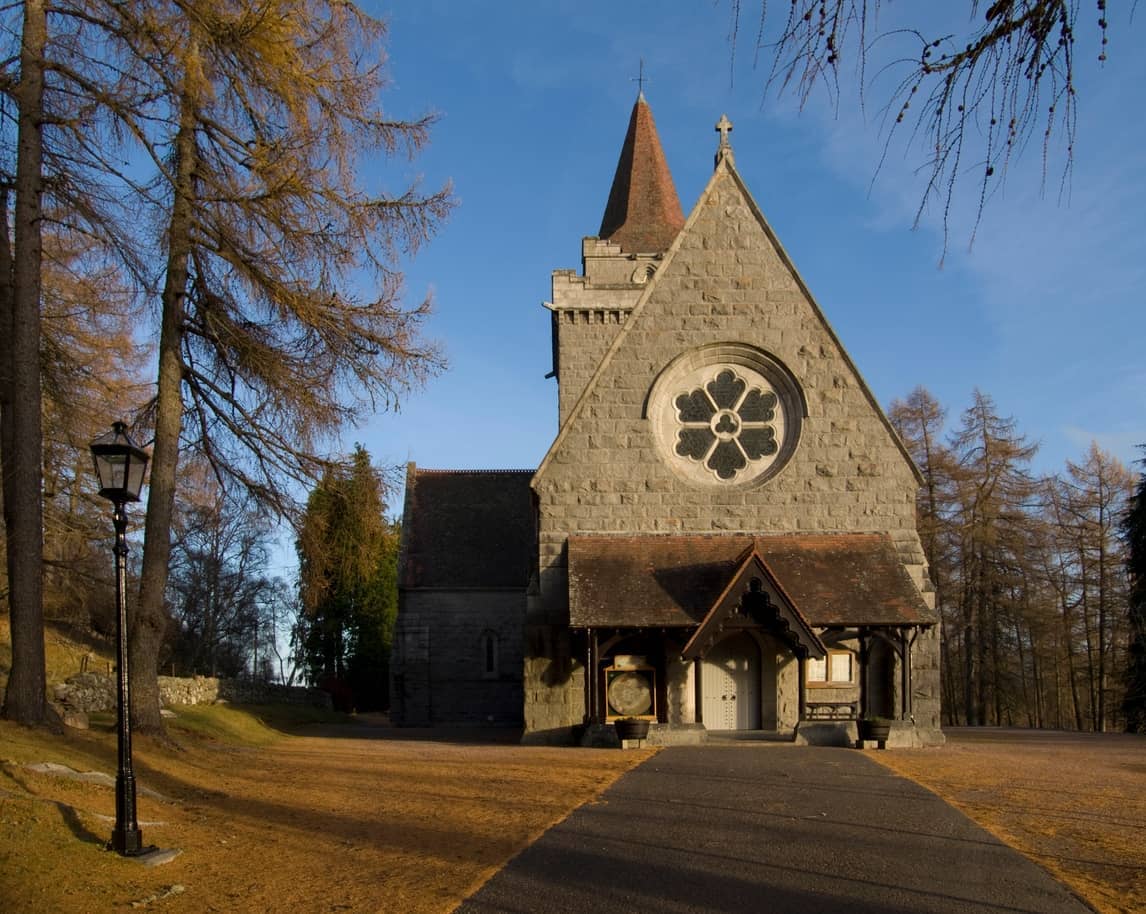When the Queen died, she was actually a Presbyterian. That’s because she was in residence at Balmoral, and all British monarchs change their religious identity when they arrive in Scotland. They board the Royal Train at King’s Cross as Supreme Governor of the Church of England, responsible for appointing bishops whom it teaches are successors of the Apostles. By the time they arrive at Waverley they belong to a Church which has no bishops and whose only Supreme Governor is Jesus. King Charles, who succeeded to the throne in Scotland, did so as an ‘ordinary member’ of the Kirk – which, as the Royal Family’s website explains, is the only religious status that the sovereign enjoys north of the border.
Many Christians find this arrangement very odd indeed. They include a fair number of Anglican clergy, especially High Church ones, who reluctantly accept it as a bizarre consequence of the 1707 Act of Union. But Queen Elizabeth II did not find it odd. For six weeks every summer, she attended Sunday worship at Crathie Kirk, a small but slightly forbidding village church near the castle. So did all her predecessors dating back to Queen Victoria, a bust of whom glares at the congregation from the side of the sanctuary. It was actually Victoria’s decision to worship at Crathie, and it was not well received in the Church of England. The truth is that nothing in the Act of Union requires the monarch to attend the Kirk. Victoria did so because she took the very Protestant view that Anglican bishops of the Episcopal church were ‘dissenters’ in Scotland.
She had a firm preference for a particular style of worship: sombre, scriptural and unmistakably Protestant
So far as we can tell, Queen Elizabeth was not particularly interested in the theological differences between the Churches of England and Scotland. But, as I discovered when The Spectator commissioned me to write about the religious faith of the Royal Family back in 1990, she had a firm preference for a particular style of worship: sombre, scriptural and unmistakably Protestant. That was what Crathie provided. And so, up to a point, do the Chapels Royal where the Queen usually worshipped in England.
Her late Majesty was tolerant of different flavours of Anglican churchmanship. Unlike Victoria, she had no desire to throw into jail Anglo-Catholic clergy who wore antique vestments as they copied the most intricate rituals of the Catholic Church. She just didn’t want to see it, even in a watered-down form. A new incumbent of the chapel attached to Royal Lodge asked if he could wear a chasuble, the Catholic eucharistic vestment. ‘If you like,’ said the Queen, ‘so long as it doesn’t happen while I’m here.’
There was nothing unusual about her liturgical preferences, which were traditionally those of the Royal Family. ‘They’re all Low Church’, Dr Geoffrey Fisher, the Archbishop of Canterbury who crowned her, once told James Pope-Hennessy. ‘It’s because they come from abroad.’ Although the Queen Mother and Princess Margaret were more High Church, they were paradoxically less friendly towards Roman Catholics. But, like the Queen, they maintained the Low Church tradition of receiving Holy Communion relatively infrequently, and then always in private.
King Charles will surely follow their example. When he was at Highgrove, he pointedly did not worship at his parish church in Tetbury, whose main service was a Eucharist; he explained that he preferred to receive the sacrament privately from a visiting clergyman. One guest at Highgrove told me that when Charles was away from the rest of the Royal Family he didn’t go to church at all. But that was 32 years ago, and His Majesty long ago became a regular worshipper.
A much-discussed question at the time was how the Queen might react to the introduction of women priests. It was answered in 1996, just two years after the first female ordinations, when she appointed the late Canon Marion Mingins to be one of 35 Chaplains to the Queen, trusted clergy who take services and preach in the Chapels Royal. The current Dean of the Chapels Royal is a woman, Dame Sarah Mullally – though since she is the Bishop of London, who traditionally also holds that position, we shouldn’t read anything into it. Indeed, when her predecessor in London, Lord Chartres, retired in 2017 he remained Dean of the Chapels Royal for more than a year
‘The Queen was most reluctant to let him go,’ I’m told. During the 70 years of the reign, no bishop was closer to the Royal Family. If, as he writes in these pages, the Queen in later years did not distinguish between Low and High, that may be a tribute to him. He is a High Churchman who prefers Orthodoxy to Roman Catholicism; I wonder if he had anything to do with the former Prince of Wales crossing himself in the Orthodox manner at his ex-wife’s funeral, an unthinkable gesture at the beginning of his mother’s reign. It’s fascinating to read in his article that Lord Chartres dislikes the vague notion of ‘Defender of Faith’ once floated by Charles. Given his rapport with the new King, one wonders if the idea has been ditched.
Looking back at my article, I’m embarrassed by how much space I devoted to trying to pigeonhole the Queen’s churchmanship while neglecting the subject of her faith in God. But in 1990 there wasn’t much material to work with. That is no longer the case. After the death of her mother, who thought such things inappropriate, Her Majesty began to proclaim her love for her Saviour, Jesus Christ, in her Christmas broadcasts. The reaction from the public, including many non-Christians, was one of vigorous approval. Along with all those glimpses of her sense of humour, it provided us with a more sharply focused, and very attractive, image of the real Queen Elizabeth II. As the leaders of all the main denominations relied ever more heavily on secular clichés, even Catholics began to wonder if, doctrinal problems notwithstanding, she had truly earned the title once awarded to the English monarch by the Pope: Defender of the Faith.








Comments